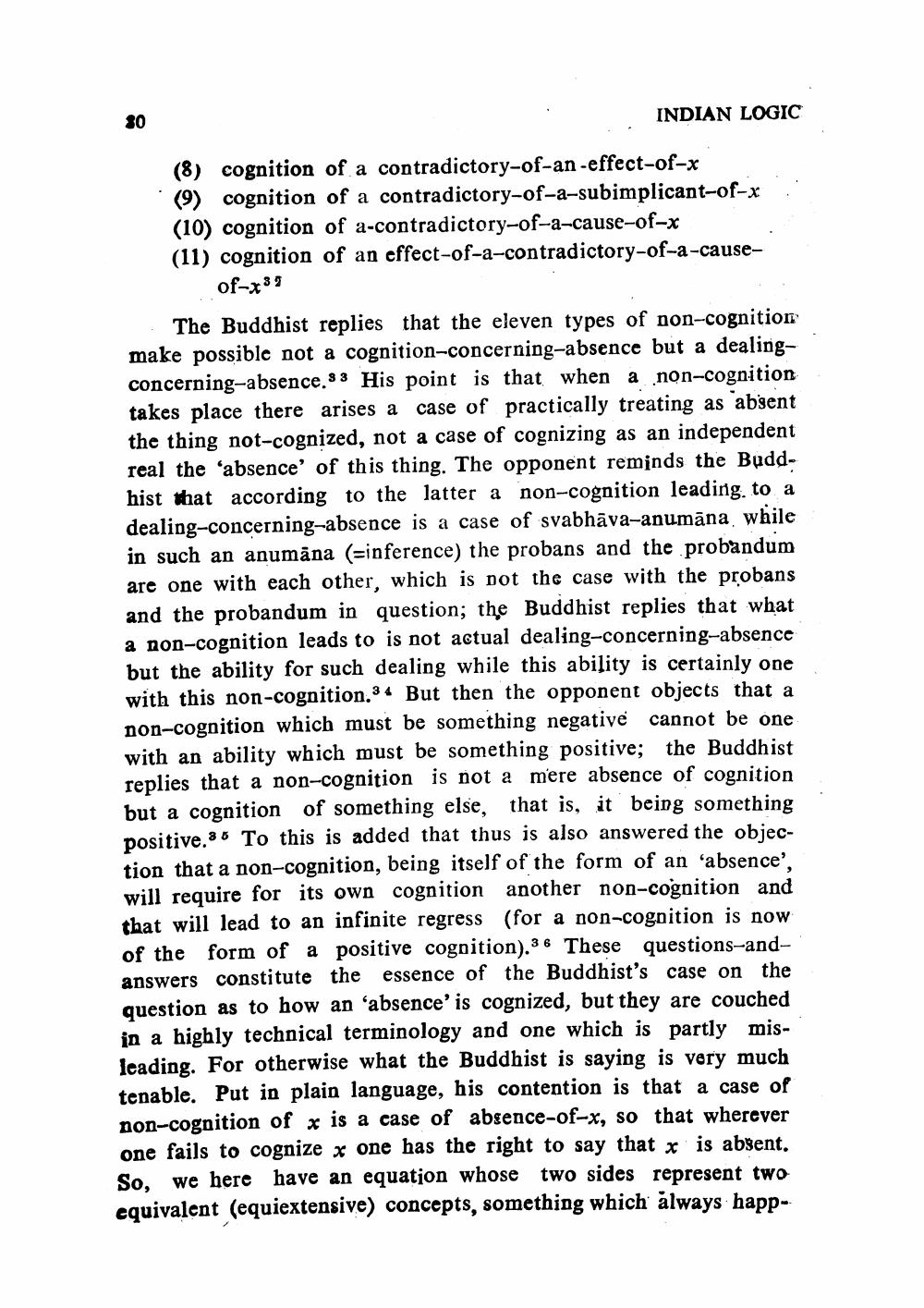________________
30
INDIAN LOGIC (8) cognition of a contradictory-of-an-effect-of-x . (9) cognition of a contradictory-of-a-subimplicant-of-x :
(10) cognition of a-contradictory-of-a-cause-of-x (11) cognition of an effect-of-a-contradictory-of-a-cause
of-739
The Buddhist replies that the eleven types of non-cognition make possible not a cognition-concerning-absence but a dealingconcerning-absence.83 His point is that when a non-cognition takes place there arises a case of practically treating as abgent the thing not-cognized, not a case of cognizing as an independent real the 'absence of this thing. The opponent reminds the Buddhist that according to the latter a non-cognition leading to a dealing-concerning-absence is a case of svabhāva-anumāna while in such an anumāna (=inference) the probans and the probandum are one with each other, which is not the case with the probans and the probandum in question; the Buddhist replies that what a non-cognition leads to is not actual dealing-concerning-absence but the ability for such dealing while this ability is certainly one with this non-cognition.34 But then the opponent objects that a non-cognition which must be something negative cannot be one with an ability which must be something positive; the Buddhist replies that a non-cognition is not a mere absence of cognition but a cognition of something else, that is, it being something positive. 38 To this is added that thus is also answered the objection that a non-cognition, being itself of the form of an 'absence'. will require for its own cognition another non-cognition and that will lead to an infinite regress (for a non-cognition is now of the form of a positive cognition).3 6 These questions-andanswers constitute the essence of the Buddhist's case on the question as to how an 'absence'is cognized, but they are couched in a highly technical terminology and one which is partly misleading. For otherwise what the Buddhist is saying is very much tenable. Put in plain language, his contention is that a case of non-cognition of x is a case of absence-of-x, so that wherever one fails to cognize x one has the right to say that x is absent. So, we here have an equation whose two sides represent two equivalent (equiextensive) concepts, something which always happ




